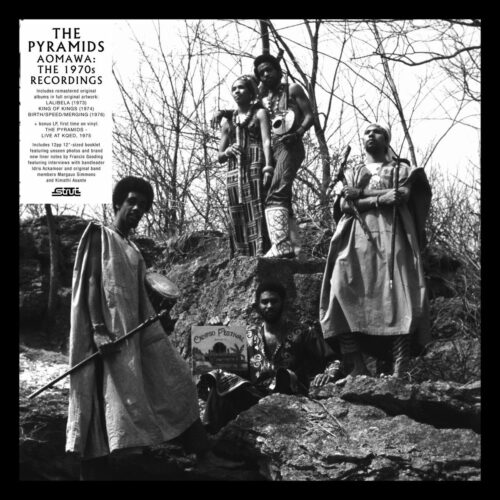The Pyramids are one of the lesser-known ensembles in the avant-garde jazz scene. Yet musicians Idris Ackamoor, Margaux Simmons and Kimathi Assante, who began playing together as students at Antioch College in Ohio, had some prominent mentors like the pianist Cecil Taylor, who also nurtured their interest in Africa. Nevertheless, The Pyramids remained largely unknown in the 70s, when they produced their first three albums independently and predominantly sold them at concerts. Their approach, which increased the focus on African influences in the same way as with Pharoah Sanders at the time, can now be experienced on »Aomawa«. The box collects their albums from the seventies for the first time together with live recordings from 1975. Their radicalism can be heard particularly clearly on their debut album »Lalibela« (1973), especially in the percussion and in their chants reminiscent of hymns. Some of the quieter pieces are perhaps less reminiscent of jazz than of the Jamaican Rastafarian percussionist Count Ossie, who was reflecting on African traditions during this period. At the same time, The Pyramids liked to combine their tribalistic rhythms with energetic outbursts reminiscent of free jazz collectivism. On their second album »King of Kings« (1974), they allowed for a tighter jazz groove, at least in parts, similarly on »Birth / Speed / Merging« (1974). Idris Ackamoor has revived The Pyramids in the meantime, but their real contribution to jazz history can be found here.
Idris Ackamoor & The Pyramids
We Be All Africans
Strut


